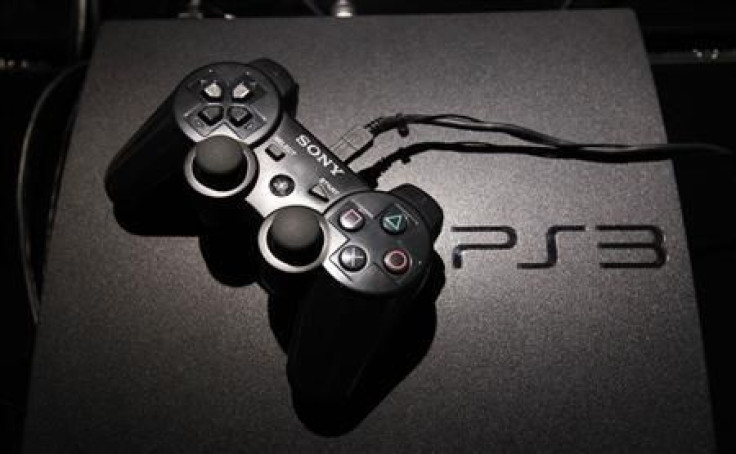China Considers Lifting Game Console Ban: Why Many Chinese May Not Care

The makers of PlayStation, Wii and Xbox 360 may have a reason to rejoice. According to China’s state-run official newspaper, China Daily, the government is beginning to consider lifting its 12-year ban on video game consoles.
An anonymous source within the Ministry of Culture said lifting the ban has been under review and is a real possibility for the future -- but not before jumping through several bureaucratic hoops.
“We are reviewing the policy and have conducted some surveys and held discussions with other ministries on the possibility of opening up the game console market,” the source told China Daily. “However, since the ban was issued by seven ministries more than a decade ago, we will need approval from all parties to lift it.”
The Wii, PS3 and Xbox, ironically, are mostly manufactured in China; now, Chinese citizens may soon be able to legally purchase them. The ban began in June 2000, when the Ministry of Culture forbade the sale of electronic gaming equipment. The ban was a way for the government to control the nation's youth, and in some way protect it from what it perceived as video game violence and the addictive nature of gaming in general.
But the ban proved ineffective. According to Kotaku, a news blog dedicated to the gaming world, the year after it was put in place, online gaming in China hit the $100 million mark in revenues. Peanuts compared to the U.S., where a population less than one-fourth the size of China's had spent more than $10 billion on video games the same year, but a lot for a country where they were officially banned. Or at least where consoles were banned; PC games weren't.
So, computer games and handheld game consoles (especially on cellphones) ended up being very popular, an unforeseen effect of the ban. Internet cafes in Beijing made a large portion of their money off of teenagers who paid to be able to face their friends and play computer games on the same network for hours every day.
Instead of imposing an additional ban on computer games, China put its vast censorship apparatus to work. According to The Shanghaiist, a Shanghai-based news-blog, the Chinese government exercised its infamous "editing" on games that contained anything that it believed to be corruptive or inappropriate. In one case, a World of Warcraft expansion game called Wrath of the Lich King was legally released in China almost two years after its American release date. Why the delay? Because of “objectionable content” -- meaning the presence of skeletons, bones and dead players’ corpses. Modifications to the game to remove content deemed inappropriate delayed the release, and considering the primary theme of the game being the undead, ultimately changed the experience as well.
This is not to say that Chinese gaming fans have been without original versions of censored games, or even without the game consoles. The ban also, inevitably, created a strong black market for consoles and their games. Though the ban exists on paper, the government makes little effort to enforce it. In fact, referring to it as a black market makes it sound a lot more underground and covert than it really is. Legal electronic stores and tourist markets openly sell game consoles and violent video games. People can easily purchase the Xbox, in addition to other consoles, on Taobao.com, China’s online market.
Of course, whether or not they are pirated copies or knockoff versions is another question, but either way, vendors are hardly secretive about selling the banned items. Officials have cracked down on pirated movie DVDs and fake Louis Vuitton purses more than on anything sold on the officially illegal gaming market. A case in point: My brother, who lived in Beijing and owned the original PlayStation before the ban, and later purchased the PlayStation 2 and Xbox 360 after the ban was issued, saw virtually no difference in difficulty in acquiring the consoles or games.
Now, as China begins to take steps toward lifting the ban, game console parent companies, Sony (NYSE: SNE), Microsoft (NASDQ: MSFT) and Nintendo (PINK: NTDOY) are hoping to penetrate the mainland Chinese market far more deeply. Some news sources are cautious: It's far from certain that skyrocketing sales will follow if the ban is lifted, as both Sony and Nintendo are Japanese companies. China and Japan have centuries of enmity and have lately been at odds over the disputed Diaoyu/Senkaku islands, and the strain between the Asian giants has been reflected in the markets as well, as Japanese brands like Toyota saw drastic drops in revenue from China.
However, overturning the ban could come be in the interest of the Chinese too.
Lifting the ban could help the nation achieve the new economic goals set for the coming year, shifting from unsustainable, exponential, export-led growth to "quality growth" rooted in increasing internal consumption. And buying video games is as good a way as any to consume more.
© Copyright IBTimes 2024. All rights reserved.












